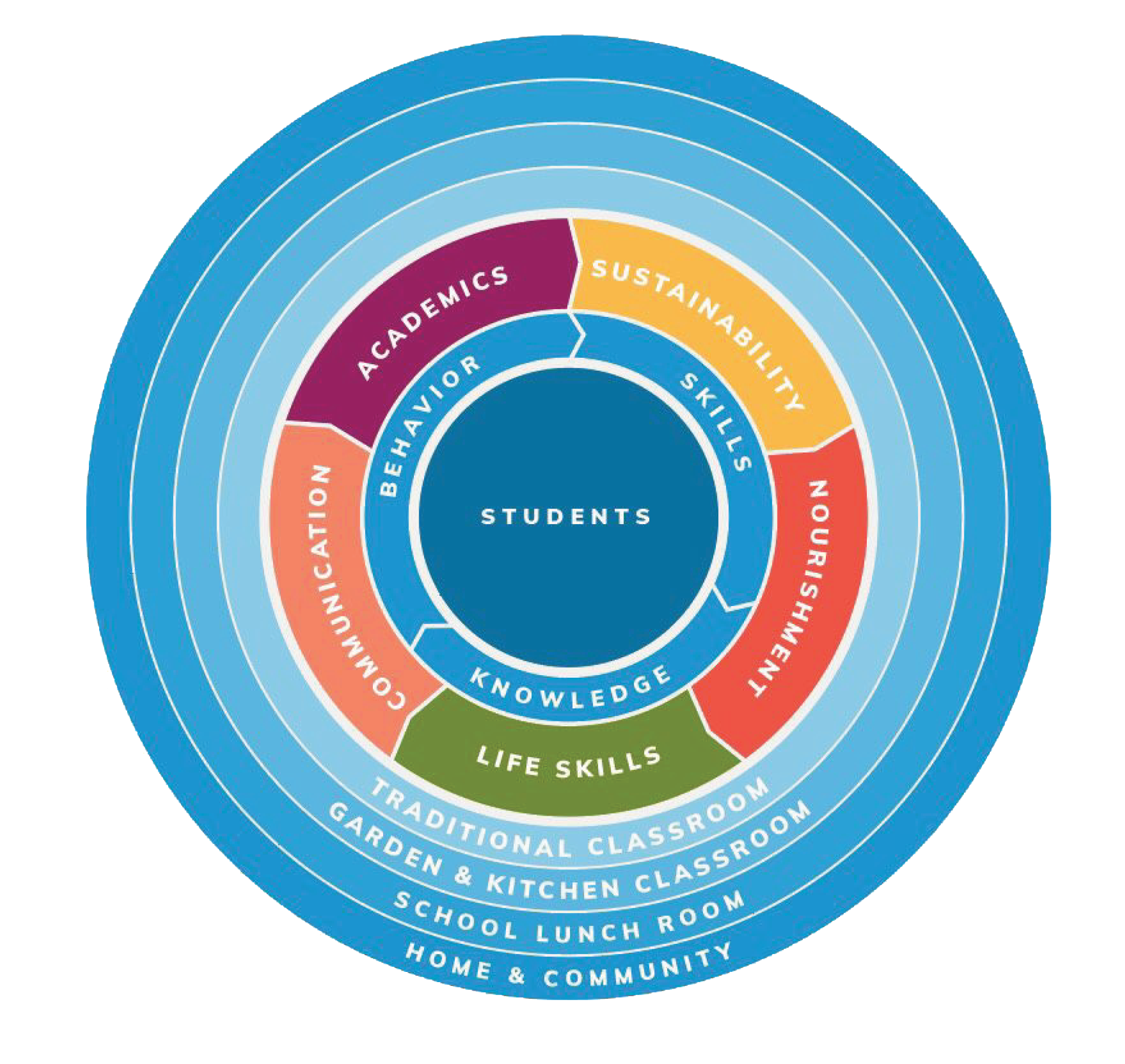1. Edible Education Framework
We design our curriculum to meet the integrated learning goals outlined by the Edible Education Framework. It serves as a guide to translate our theory of edible education into practice.
We design our curriculum to meet the integrated learning goals outlined by the Edible Education Framework. It serves as a guide to translate our theory of edible education into practice.

An edible education places students at the center of their learning and uses food to engage all aspects of their education.
Through growing, processing, cooking, eating, studying, talking, and thinking about food, students develop skills, knowledge, and behaviors that enrich their academic and non-academic lives, bolster their growth as individuals and in relationships; cultivate meaningful engagement with their own health, the health of their communities, and the health of the planet.
We collaborate across the traditional classroom, garden and kitchen classrooms, and lunchroom to support student learning and create a consistent school food culture.
We also consider students' homes and communities as partners in their education. We want all our students to feel like school is a place made for them. One where what they are learning reflects their lived experience outside of school hours.
Edible education brings classroom and conceptual learning to life in the garden and kitchen. Hands-on experiences engage students and help them learn academic content.
In order to take care of something, you need to fall in love with it. Edible education offers students deep sensory experiences with the natural world. As they are carried into adulthood, these experience translate into authentic and personal commitments to care for the earth.
Research shows edible education leads to increased consumption of fruits and vegetables. It's simple: when kids grow and cook food, they want to eat it. We aim to guide students as they develop an authentic relationship with food, including healthy eating behaviors that will be with them for life.
Edible education provides students with a range of practical skills to care for themselves, their families, and their communities. At the end of the day, we want students to be able to walk into the kitchen, look at what they have, and cook something delicious.
Edible education offers endless opportunities for students to learn how to effectively communicate with one another. Students work alongside classmates that are different than them to complete a garden task or prepare a recipe. This allows them to practice how they show up as leaders, collaborators, and humans.
The Edible Schoolyard Standards outline the tangible and conceptual skills that we strive to teach throughout students' time in our program.
They were designed to help define and communicate learning goals for the kitchen and garden.